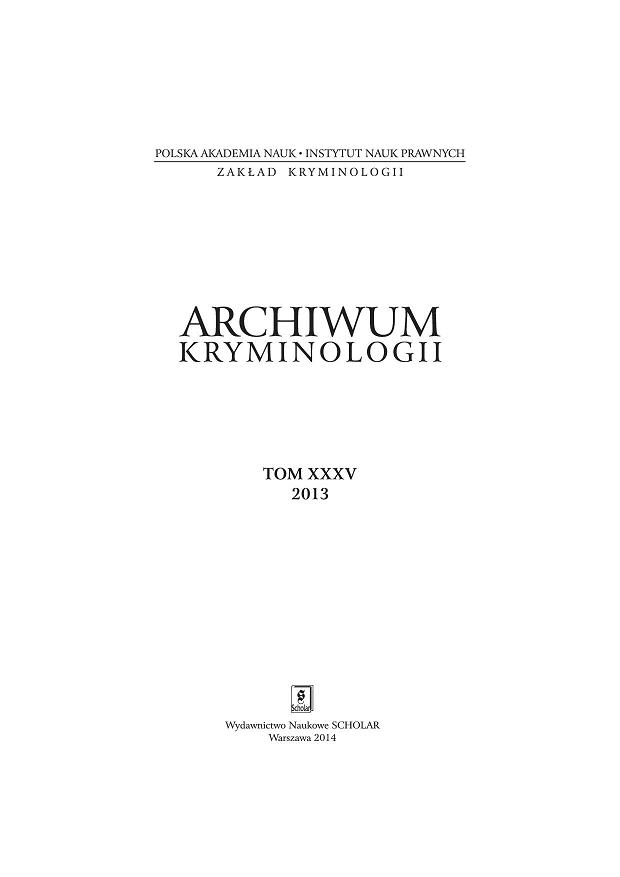Atypowe przypadki korupcji w ocenach sądów i prokuratur na przykładzie przestępstw z art. 228 i 229 k.k.
Atypical bribery cases in the opinion of courts and prosecutor offices as illustarted with examples of crimes commited under articles 228 i 229 Penal
Author(s): Paweł BachmatSubject(s): Law, Constitution, Jurisprudence
Published by: Instytut Nauk Prawnych PAN
Keywords: BRIBERY;
Summary/Abstract: The article presents results of file research invovling an analysis of the manner in which court and prosecution applied law in resolving atypical cases of bribery. The subject of the said research were atypical cases of bribery involving crimes under Article 228 and Article 229 of the Penal Code perpetrated by persons performing public functions. The cases discussed followed a number of varied scenarios which, in general, consisted in accepting or granting material or personal benefit or a promise of such in connection with the perpetrator's official capicity. Hence the conduct of the perpetrator did formally fulfil the definition of the crime defined in Articles 228 and 229 Penal Code. However, since some specific circumstances took place, such as a statutory body's decision or penal jurisprudence, the perpetrated act should not render the perpetrator liable to prosecution. It was found that, when classifying atypical acts of corruption, judicial authorities made some effort to employ lenient penal-legal assessment of the perpetrator's conduct, but they often did so with insufficient diligence and by implementing inappropriate provisions of the penal law. The atypical bribery cases included circumstances in which physicians misled their patients by suggesting they should purchase a highend endoprothesis or medicine produced abroad, on an allegedly free market outside the National Health Fund (NFZ) refunding system. The patients they did so, in spite of the fact that such recommendations have no substantiation in the public functions of a medical doctor. Physicians would then claim that they assumed the role of an intermediary between a patient and a foreign dealer or manufacturer. In practice, they used prothesis or medicines refunded by the National Health Fund (NFZ). Unaware of that fact, patients acted in error as to the circumstances, fulfilling the definition of an unlawful act (error facti), and in particular, the patients were not aware that the money they handed over was in fact a bribe granted in connection with official capacity of the physician. In consequence, the criminal procedure in such cases should either be closed by means of discontinuation or refusal to instigate under Article 17 § 1.2 Criminal Procedure Code subject to Article 28 § 1 Penal Code. Prosecution bodies, however, avoided such classification and in cases like that opted for exempting the informer - briber from the penalty (Article 229 § 6 Penal Code), which did not fully reflect the actual legal and formal circumstances of a misinformed patient's conduct. Especially disagreeable was the fact that the solution adopted by prosecution assumed such patients were guilty. It was established that the notion of customary gifts, widely accepted in penal law publications as lawful excuse, is in practice defunct. This does not mean that similar facts were never subject to criminal procedure.
Journal: Archiwum Kryminologii
- Issue Year: 2013
- Issue No: XXXV
- Page Range: 247-282
- Page Count: 36
- Language: Polish

